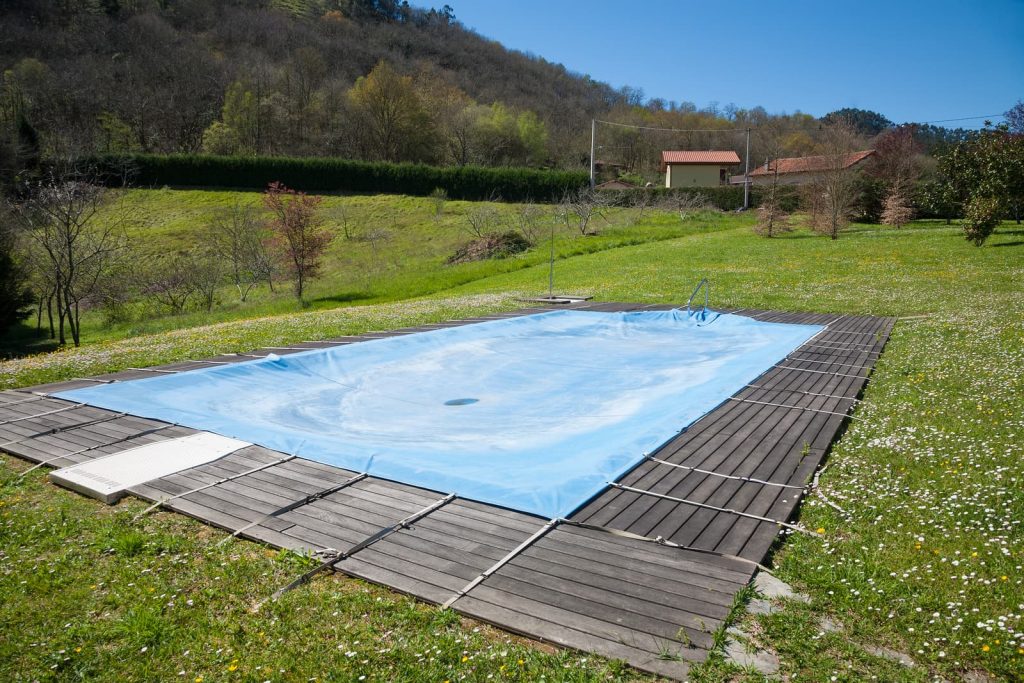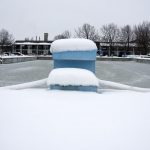It’s Closing Time – Closing a Pool for Winter
As the summer comes to an end, pool owners and Certified Pool Operators® are gearing up to close up for the year. When closing a pool for winter, there are plenty of tasks to take care of, each essential to successfully protecting it. While residential pool owners can rely on the help of professionals to close their pool, Certified Pool Operators must know every step of the process.
Winterizing
A strong winterizing plan prevents damage to pool shells and mechanical equipment, in addition to the building and grounds of the swimming facility. Your plans for closing a pool for winter should include procedures on how to prevent damage from hydrostatic pressure as well as rust and general wear on the pool. Steps must also be taken to reduce the chances of vandalism. Every plan should have a checklist for disassembling and storing equipment for the season.
Hydrostatic Pressure
When there is hydrostatic pressure on a pool shell, an empty pool can get lifted out of the ground and damaged. Even when there is water in the pool, efforts must be taken to relieve this hydrostatic energy on the pool shell. Hydrostatic relief valves reduce this upward pressure as well as well points installed around a pool. The well points are tied into a suction pump that drains the water surrounding the pool shell. When closing up for the season, it’s important to ensure these are in working order.
Pool Covers
Pool covers are essential for closing a pool for winter. They control staining, keep debris out of the pool, and protect it from other hazards that can occur. Most winter pool covers are fastened to the decks around a pool by a spring-loaded device. Make sure these are all tightly secured and maintained so they will not break or allow the cover to sag during the off-season. They are also a safety measure to prevent access to the pool.
Deterioration
During the off-season, a pool is subject to UV rays and weather conditions (if outside), rust, cold dampness, pests, and condensation. These can all reduce the lifespan of a pool so steps need to be taken to protect the pool equipment. For example, equipment can be brushed or sprayed with an oil-based product or water displacement formula to reduce moisture damage. Waterlines should be disconnected and drained and as much water as possible should be blown out through lines, valves and showerheads. Mechanical equipment should be drained and winterized. To further prevent deterioration, all outdoor furniture, plumbing, and electrical fixtures should be disassembled and stored indoors. A swimming facility should also be treated for pests and insects before closing up for the season. Every swimming facility should have a comprehensive checklist detailing these processes and more for that unique facility.
Pool Chemistry
Although there are typically little to no health code requirements for water chemistry after closing a pool for winter, proper treatment can help protect the pool. Free chlorine, pH and water chemical balance should be maintained. However, the frequency of maintenance can be much lower than during the swimming season. In areas where acid rain/snow is common, keeping your pH on the high side is recommended.
Properly Closing a Pool for Winter
Keep in mind that this is just a basic outline of how to protect pool equipment during the off-season. In order to truly take care of a pool/spa, you will need to take courses in CPO certification. Pool Operation Management offers award-winning, two-day courses in CPO certification. We offer the perfect start to becoming a pool expert.
We also offer residential and commercial pool maintenance services, so we can maintain your pool for you. Our experienced professionals not only will help you get certified, but you will acquire real-world knowledge to aid you in your pool operation career. Our expertise even qualifies us to serve as expert witnesses in legal matters. Contact us today to get started with the pool experts.







